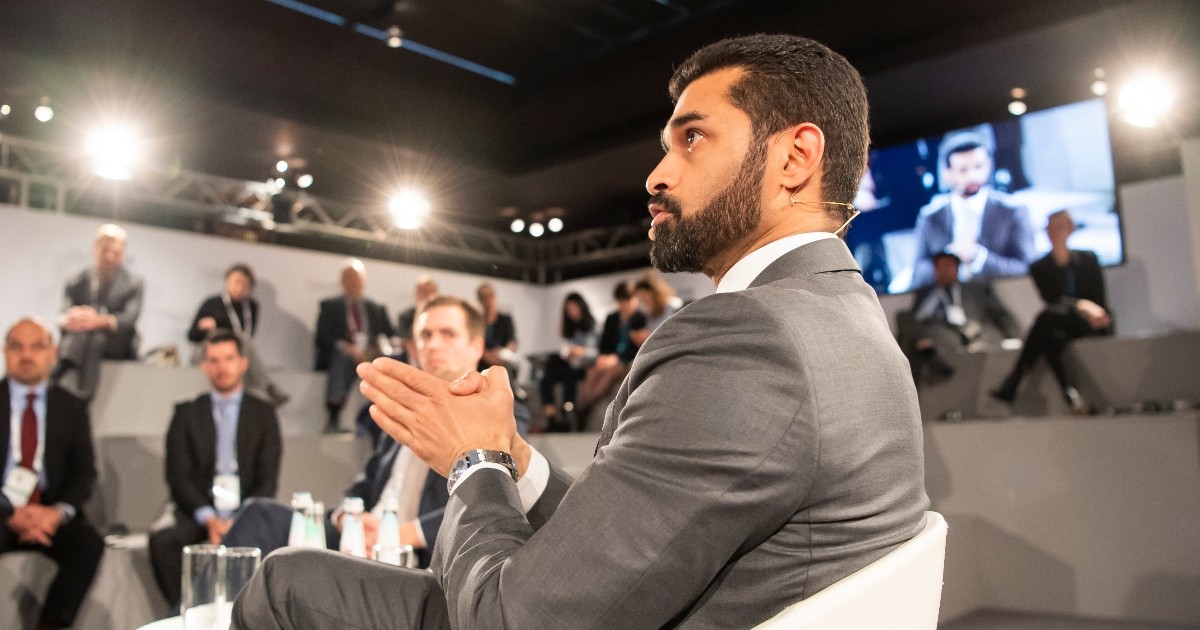.jpg)
_1-itok=GFMKQ6A9.jpg)
Qatar’s hosting of the FIFA World Cup Qatar 2022™ has the potential to bridge cultures and unite the Middle East, said H.E. Hassan Al Thawadi, Secretary General of the Supreme Committee for Delivery & Legacy (SC), during the Munich Security Conference (MSC).
Al Thawadi was speaking alongside renowned academics, practitioners and policymakers, including David Miliband, CEO, International Rescue Committee, Philipp Lahm, captain of Germany’s 2014 FIFA World Cup™ winning team, Lassina Zerbo, Executive Secretary of the Comprehensive Nuclear Test Ban Treaty Organisation, and Nick Burns, Professor of the Practice of Diplomacy and International Politics at Harvard’s John F. Kennedy School of Government.
During the panel session, which was moderated by Cathryn Clüver Ashbrook, Executive Director of the Future Diplomacy Project, Al Thawadi discussed the importance of the world’s most-watched sporting event as a vehicle for uniting people and nations, driving positive change and creating a lasting legacy even prior to the tournament’s big kick-off on 21 November 2022.
“From day one we recognised that football – and the World Cup in particular – moves people in profound ways. It really does touch people’s hearts,” said Al Thawadi.
“We realised that sport is a platform through which you can actually reach people – through the World Cup you can reach every single home on the planet.
“We wanted to make sure we utilise this transformative event, whether we’re using it as a vehicle for social development and social progress for Qatar, passing it onto the region, or using it as a platform to break down stereotypes.”
Al Thawadi said Qatar is particularly keen to utilise the hosting of the World Cup to showcase the very best of the Middle East and Arab world.
“It goes without saying that our part of the world suffers from significant misperception issues,” he said. “People see us through a certain lens, but we find that when people get together in a sporting event, all that breaks away. People get together and celebrate – they no longer paint everybody with the same brush.
“Two perfect examples are Russia 2018 and Germany 2006 – the fans who attended left those two tournaments with completely different perceptions of those countries. It was a perfect example of people to people diplomacy – thousands of fans coming from around the world, interacting with people from the host nation and crafting their own opinions of that country and not relying on a stereotype. When it comes to the first World Cup in the Middle East and Arab world, we see it as a golden opportunity to introduce our region and showcase all of its positive attributes to the rest of the world.”
More than nine years after winning the hosting rights, Qatar is already witnessing the legacy benefits of hosting the World Cup, said Al Thawadi.
“We launched Challenge 22 to support entrepreneurs in the region, so they can use the World Cup as a platform to reach people beyond their local markets. We have the Josoor Institute, which is uplifting the skills of people working within the sporting and hospitality industries – something which will allow these industries to act as job creators and contribute to economic growth in Qatar and across the region.”
The MSC is the world's leading forum for debating international security policy. It is a venue for diplomatic initiatives to address the world's most pressing security concerns. The MSC's objective is to build trust and to contribute to the peaceful resolution of conflicts by sustaining a continuous, curated and informal dialogue within the international security community.

